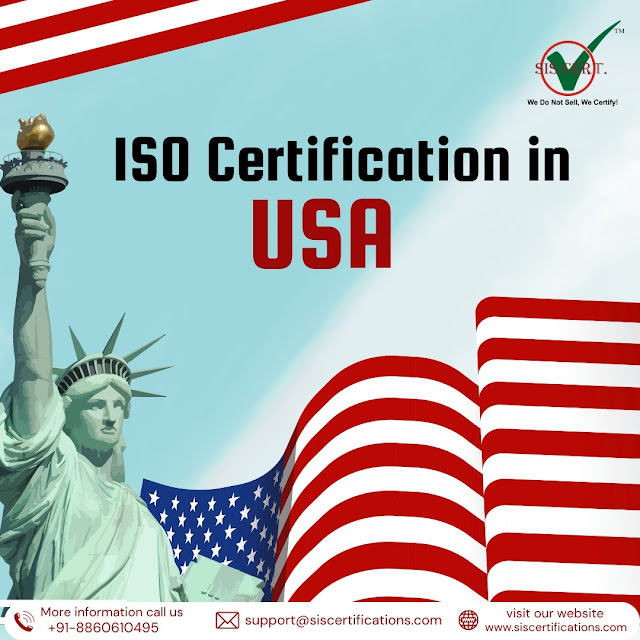Introduction to ISO Certification in the USA
In today's globalized and highly competitive business landscape, maintaining quality, efficiency, and consistency is paramount. For organizations looking to stand out in the crowd and demonstrate their commitment to excellence, ISO certification is a powerful tool. ISO certification is not only recognized worldwide but also provides a structured framework for improving processes, reducing risks, and enhancing customer satisfaction. In this blog, we will introduce you to ISO certification in the USA, explaining what it is, why it matters, and how it can benefit your business.
What Is ISO Certification?
ISO stands for the International Organization for Standardization. It is a non-governmental organization that develops and publishes international standards for various industries and disciplines. ISO certification, also known as ISO registration, is a formal process where an independent certification body assesses an organization's adherence to specific ISO standards. These standards cover a wide range of aspects, including quality management, environmental practices, information security, and more.
Why Is ISO Certification Important?
ISO certification serves several crucial purposes for businesses operating in the USA:
Enhanced Quality: ISO standards provide a framework for ensuring product and service quality. By implementing these standards, organizations can streamline processes, reduce errors, and enhance the overall quality of their offerings.
Global Recognition: ISO certification is internationally recognized, making it easier for organizations to compete in global markets. It assures customers, partners, and stakeholders that your business operates at a high standard.
Improved Efficiency: ISO standards emphasize efficiency and resource optimization. Implementing them can lead to cost savings, reduced waste, and increased productivity.
Risk Management: ISO standards include risk management components, helping organizations identify and mitigate potential risks that could impact their operations.
Customer Trust: ISO certification demonstrates a commitment to meeting customer requirements and delivering consistent, high-quality products and services. This builds trust and fosters customer loyalty.
Types of ISO Certification
There are numerous ISO standards tailored to various industries and aspects of business. Here are a few examples:
ISO 9001: Quality Management System (QMS) standard, focused on enhancing customer satisfaction through effective processes and continuous improvement.
ISO 14001: Environmental Management System (EMS) standard, addressing environmental responsibility and sustainability.
ISO 27001: Information Security Management System (ISMS) standard, ensuring the confidentiality, integrity, and availability of sensitive information.
ISO 45001: Occupational Health and Safety Management System (OHSMS) standard, promoting a safe and healthy work environment.
The ISO Certification Process
The process of obtaining ISO certification involves several steps:
Select the Relevant ISO Standard: Choose the ISO standard that aligns with your organization's goals and industry.
Implement the Standard: Develop and implement the necessary processes and documentation to meet the standard's requirements.
Internal Audit: Conduct an internal audit to ensure compliance with the chosen standard.
Select a Certification Body: Choose an accredited certification body to perform an external audit.
External Audit: The certification body conducts an audit to evaluate your organization's compliance with the standard.
Certification: If your organization meets the standard's requirements, the certification body issues an ISO certificate.
Conclusion
ISO certification in the USA is a valuable tool for organizations seeking to enhance their operations, demonstrate their commitment to quality, and gain a competitive edge. It's a symbol of excellence that not only improves efficiency but also builds trust among customers and partners. In subsequent blogs, we will delve deeper into specific ISO standards and their benefits. Stay tuned to learn more about how ISO certification can transform your business.




Comments
Post a Comment